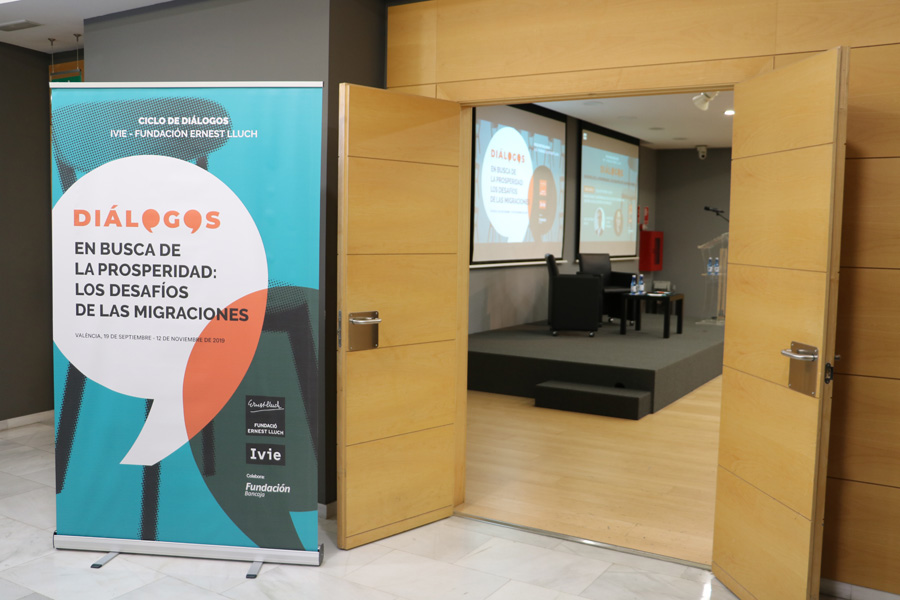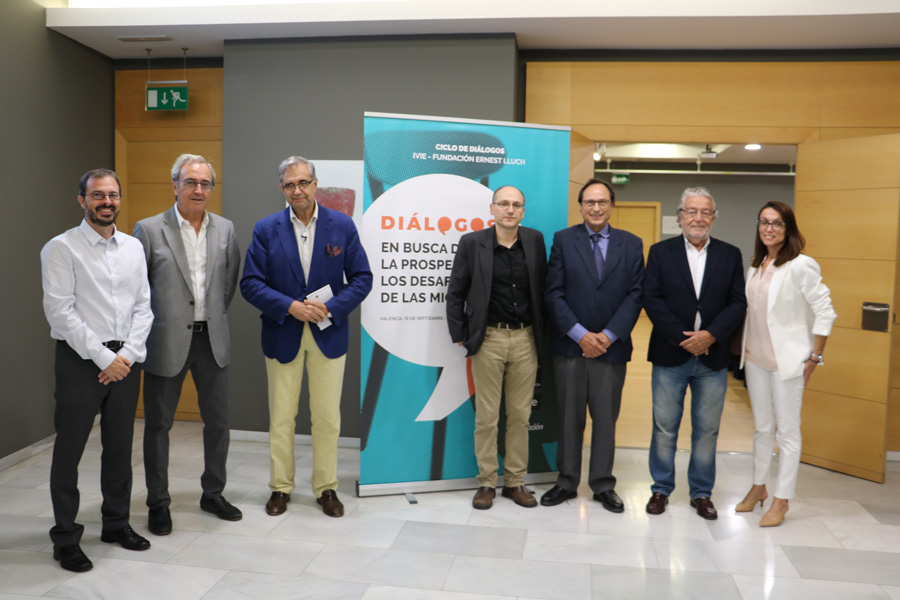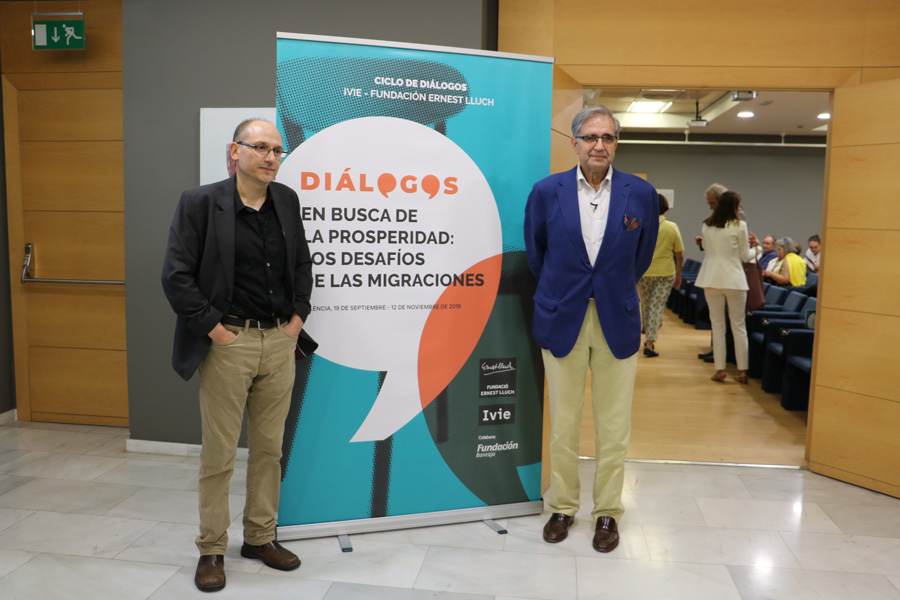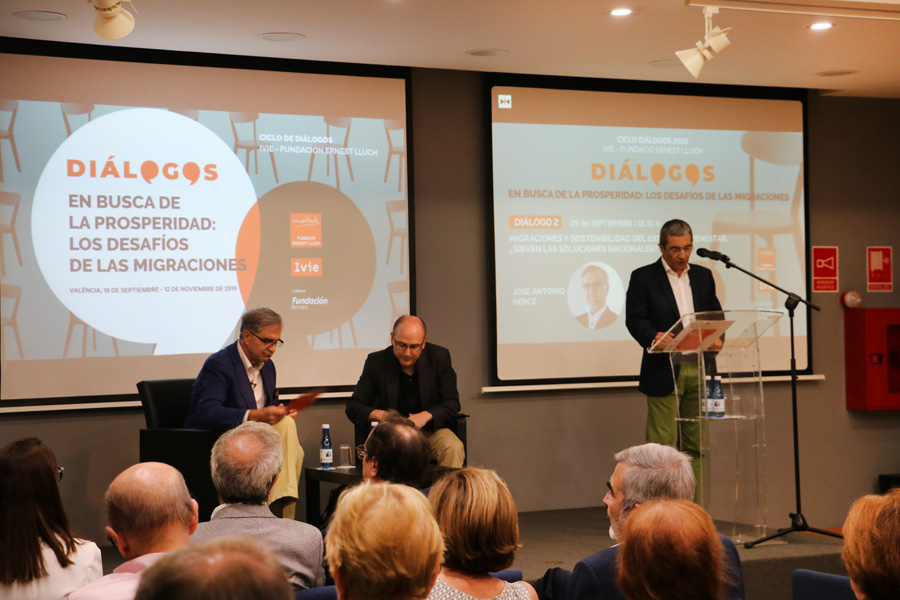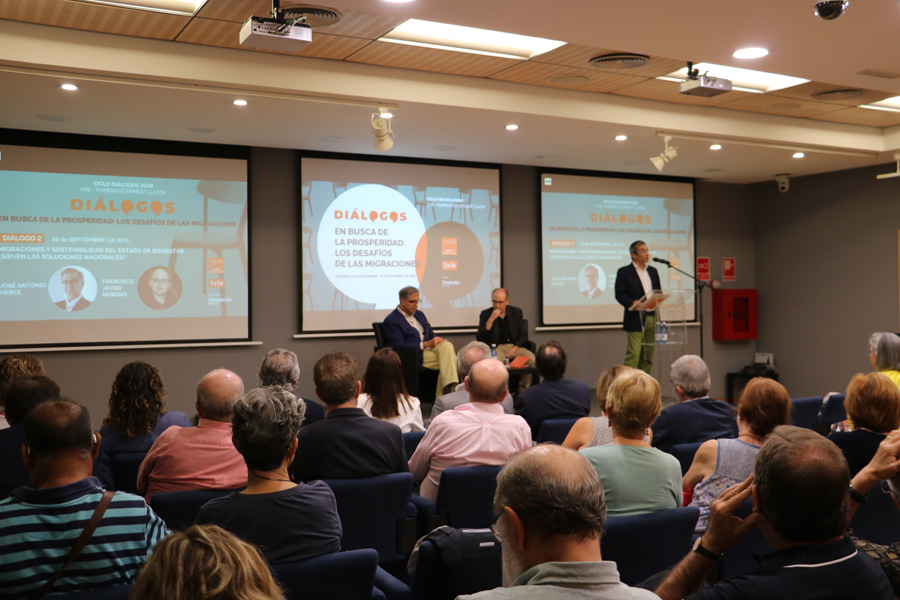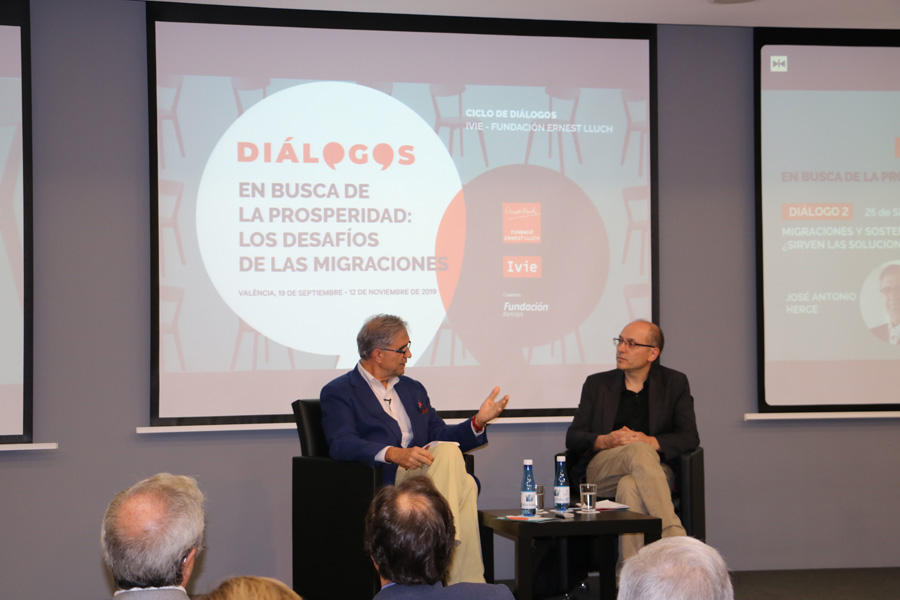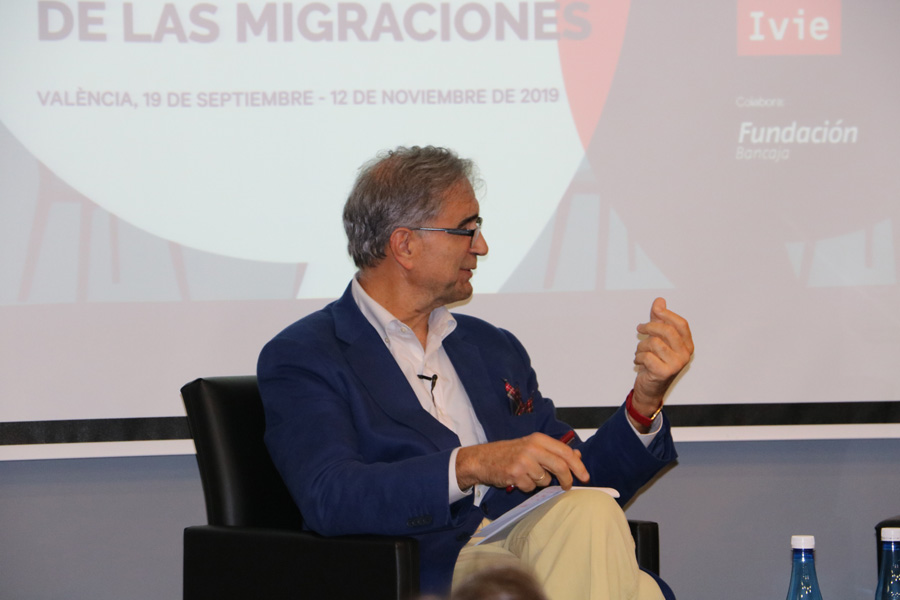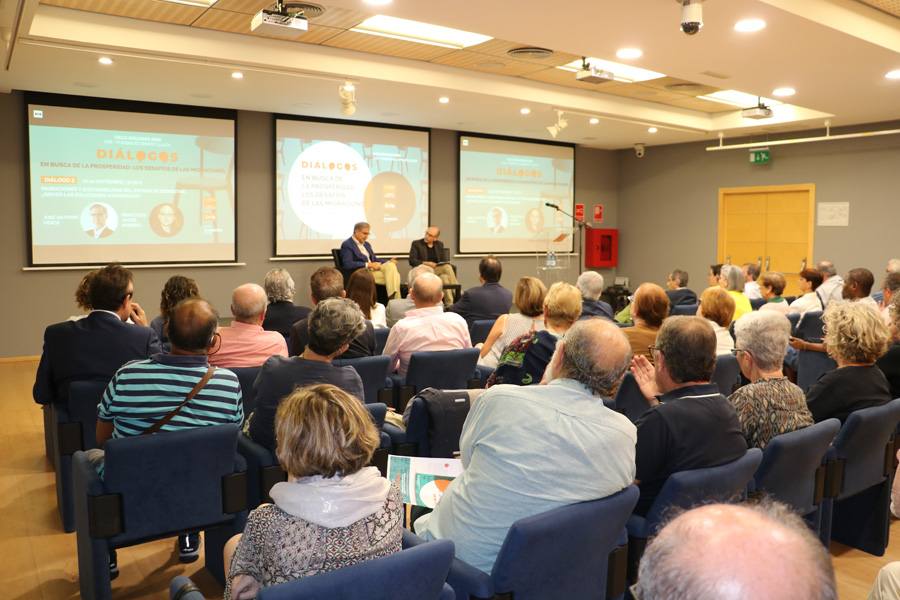Esta web utiliza cookies para que podamos ofrecerte la mejor experiencia de usuario posible. La información de las cookies se almacena en tu navegador y realiza funciones tales como reconocerte cuando vuelves a nuestra web o ayudar a nuestro equipo a comprender qué secciones de la web encuentras más interesantes y útiles.
News
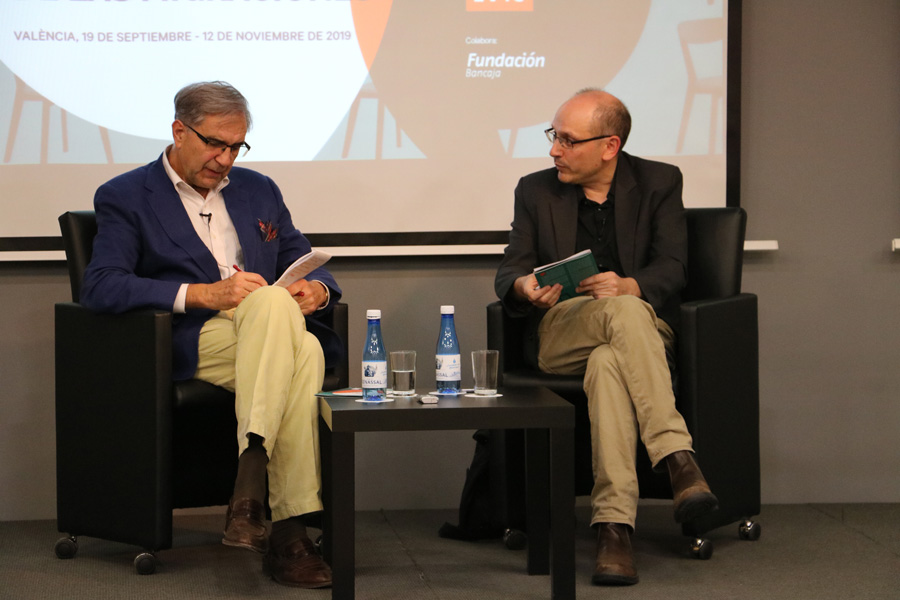
Jose A. Herce: "Immigrants who have worked and paid social security in Spain have every right to receive retirement benefits even if they are no longer resident in Spain."
El segundo diálogo del ciclo En busca de la prosperidad: los desafíos de las migraciones, organizado por la Fundació Ernest Lluch y el Ivie, pone sobre la mesa los efectos de la migración sobre el estado de bienestar
The second dialogue in the series organized by the Ernest Lluch Foundation and the Ivie in collaboration with the Bancaja Foundation, titled “The quest for prosperity: challenges of migration”, analyzes the effects of migration on the welfare state. The main speakers were José Antonio Herce, associate director of AFI, and Francisco Javier Moreno, senior researcher at the Institute of Public Goods and Policy at the CSIC, who both agreed that our welfare system is unable to cater for newly emerging social protection needs, with immigrants being the group most affected.
According to Moreno, the welfare system needs to be brought up to date to tackle new social risks such as job insecurity, dependency and inequality, despite the pressures being exerted by 8 million voters receiving pensions, which politicians consider untouchable.
In Herce’s view, immigration has not increased these problems; on the contrary, it is a resource which, if managed properly, can be beneficial to an economy. Over the years, immigrants have supported the welfare state by working and paying taxes, and it is only fair that they receive the retirement benefits that correspond to them, even if they are no longer resident in Spain. He further clarifies: “The resources available to pay retirement benefits do not come from those who are currently working, but from the years a person has worked. We have to accept the need to work for longer, because we have set our sights on a retirement threshold of 65, and that is unsustainable.”
Moreno also rejected the popular idea that immigrants use up public resources, affirming that the empirical evidence does not support that belief, the result of prejudice against those who are different. Both speakers agreed that the responsibility for portraying the reality of immigration belongs to the public administration, which should demonstrate with data that, for example, immigrants make less use of public health services.
In Herce’s opinion, immigration is quite predictable: “We have data on immigration flows that allow to anticipate and prevent problems.” Moreno emphasized that labor needs determine immigration flows and not the social benefits available; this explains the fact that “there are no immigrant flows to countries with a guaranteed minimum income.”
Moreno also stressed that social expenditure is not just spending, but is also an investment that will lay the foundations for a more competitive society that can assume new social risks and that does not fail young people, immigrants and women breadwinners.


